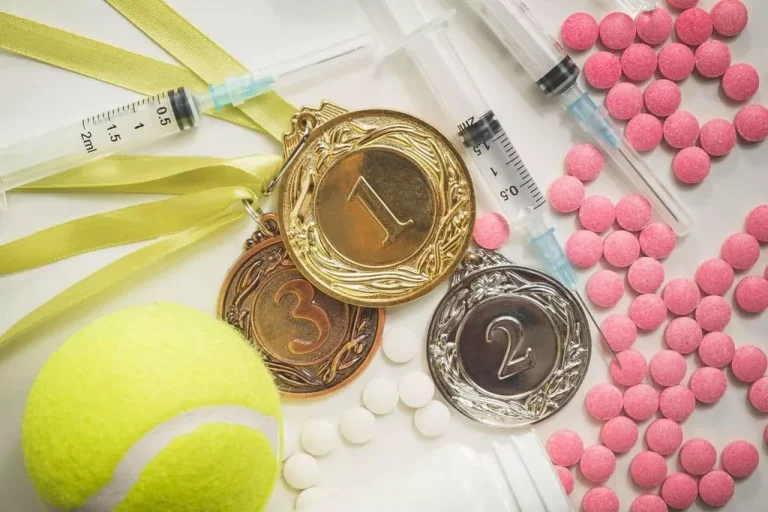How to Get Alcohol Out of Your System Safely LRI Blog

Or if you’re on the go, opt instead for an easy gut-healthy smoothie. You have a good shot at passing the test, but there are no guarantees. If you are concerned about passing a test, your best bet is to detox and stop drinking at least 80 hours before the test. If two people have the same weight and gender, the person with a lower body fat percentage will have a lower BAC than the one with a higher body fat percentage. Remember that alcohol is a depressant, and taking other substances that enhance sleep while you are under the influence of alcohol can have dangerous side effects.
Next stop: the liver
This fermented liquid contains probiotics, helps stabilize blood sugar, and may even help with weight loss. While it may not speed up flushing alcohol out of your system, exercising does have benefits for people who have been drinking. Physical activity can help increase blood flow and oxygenation, which can help with alertness, as well as reducing stress, anxiety, and hangovers. Although these numbers are staggering, many individuals struggling with alcohol consumption are seeking treatment. One of the first steps in overcoming an alcohol addiction is the detoxification process.
- Take our short alcohol quiz to learn where you fall on the drinking spectrum and if you might benefit from quitting or cutting back on alcohol.
- Alcohol is processed in the body and removed from the bloodstream through the metabolic system (90 to 95%).
- While there’s no instant cure for alcohol in your system, combining immediate actions with long-term lifestyle changes can significantly impact how quickly you recover.
- A healthy liver will eliminate one normal-sized alcoholic beverage in about one hour.
- As mentioned above, it is not advisable to do the withdrawal process on your own.
- The higher the number, the worse a person’s symptoms are and the more treatments they likely need.
Understanding Alcohol Metabolism
In general, it’s safe to quit alcohol on your own as long as you have been drinking in moderation. It also forces you to breathe deeply, which delivers more oxygen to your liver so it can break down alcoholic drinks more effectively. After regaining physical and emotional stability, your recovery programme begins. When it is time to leave rehab, our continuing care helps ensure that you stay on track with the relapse prevention plan developed during your stay.
Do some breathing exercises

Opting for the right foods and beverages can play a role in supporting your body’s natural detoxification process after alcohol consumption. A balanced diet not only supports your body’s detoxification processes but also improves your overall health, making it easier to recover from alcohol consumption. In urine, alcohol can be detected from 12 to 130 hours if how to flush liquor out your system a person has been drinking excessively. Phosphatidylethanol (PEth), a biomarker that reflects alcohol intake, can be detected up to 14 days in urine. Alcohol can be detected from 12 to 24 hours in the breath, as well as in saliva. And when tested in the hair, especially at the root, alcohol can be detected up to 90 days after a person has stopped drinking.

Others accumulate over time and significantly affect your physical and mental health and quality of life. The more alcohol a person drinks, the longer it takes for the alcohol to get out of their system. If a person has alcohol intoxication, any alcohol they drink will remain in the body for several hours and continue harming the brain and vital organs. Some people of Asian descent have difficulty metabolizing alcohol because they are missing a liver enzyme needed to process alcohol.
- A balanced diet not only supports your body’s detoxification processes but also improves your overall health, making it easier to recover from alcohol consumption.
- You can still pursue therapy and support groups as you go through withdrawal.
- Keep reading to find out what factors determine how long the effects of alcohol stay with you along with some tips on how to clean out your system.
- From age, metabolism, and even the type of food someone eats (or doesn’t) impacts how long alcohol stays in the system.

The food you eat while recovering from a night of drinking will affect how quickly you detoxify your body. Some foods can help speed up the process and make you feel better, whereas others hinder recovery. Age, weight, food intake during alcohol consumption, medications, liver health, and the time between drinks all contribute to how long alcohol remains in your body. That’s why many of us wonder if a month of avoiding drinking is enough to “reset” your liver back to normal. It’s true that taking a break from alcohol for any amount of time will be beneficial overall, with some research showing that liver function begins to improve in as little as two to three weeks. But a full detox is needed for the most benefit, and how much time that takes depends on a variety of personal factors.
Substance Abuse
If someone’s blood alcohol content is 0.08, it would take about five hours and 20 minutes for the body to metabolize the alcohol. It typically takes a person with a BAC of 0.20 anywhere from 12 to 14 hours to reach sobriety. The body generally eliminates 0.015 grams of alcohol per deciliter of blood each hour. On average, it takes about one hour for the body to eliminate one standard drink. Individuals who have higher tolerances to alcohol, such as people with alcohol addiction, may eliminate alcohol more quickly.
Remember that while these foods and drinks can support your recovery, the most effective way to eliminate alcohol from your system is time. Your liver will metabolize alcohol at its own pace, and these choices can complement the natural detoxification process. The side effects of alcohol consumption, such as dehydration, cognitive impairment, and nausea, can leave you feeling tired and irritable the next day.
- As a result, if you drink a lot or very quickly, some unmetabolised alcohol will linger in your blood, leading to intoxication.
- Secondly, it can help to rehydrate the body, which is important because alcohol is a diuretic that can cause dehydration.
- Drinking water, sleeping, or drinking caffeine does not remove alcohol from the blood, and will not speed up the process of getting alcohol out of the system.
- Here are some common methods and myths about flushing alcohol from your system.
- The liver then converts acetaldehyde into acetic acid, which can be used as a source of energy by the body.
If you have concerns about alcohol consumption or its effects on your health, it’s advisable to seek professional guidance. Schedule an appointment or call us and a Ria Health team member can help. Understanding alcohol metabolism is crucial for recognizing how long alcohol’s effects may last and the importance of pacing consumption to prevent intoxication and potential harm.
